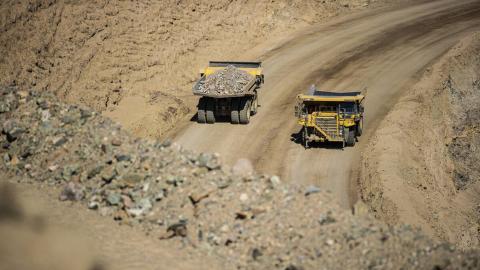
The Digital Front Line: Building a Cyber-Resilient Taiwan
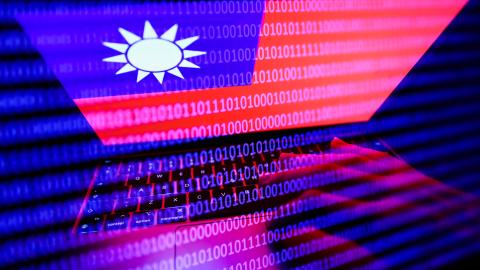
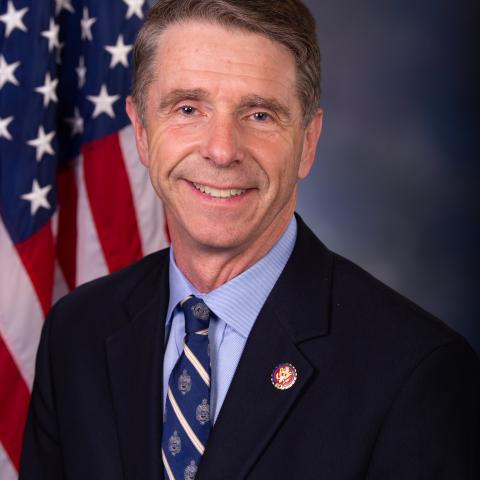
United States Representative, First District of Virginia
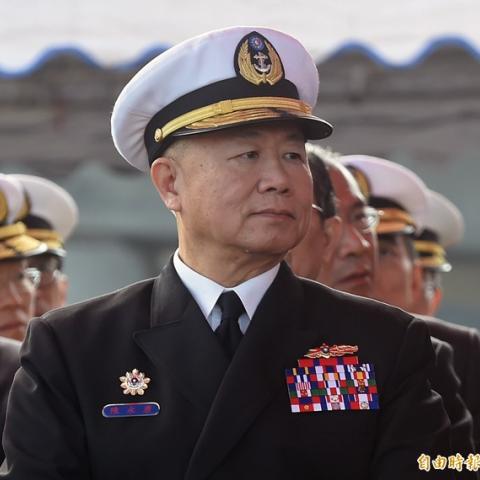
Former Vice Minister for Policy of the Taiwan Ministry of National Defense and former Chief of Naval Operations
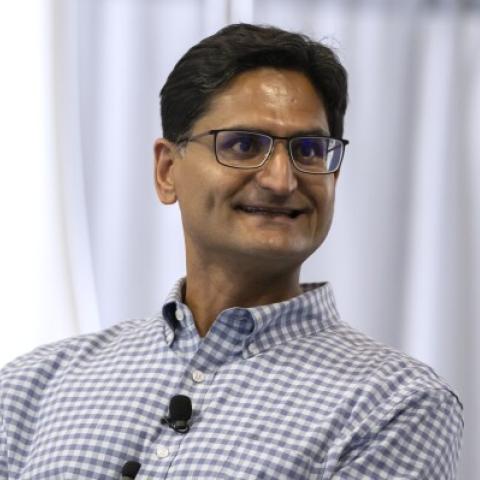
Founder and CEO, Rhombus Power

CEO, RunSafe Security
Taiwan sits at the intersection of geopolitics and global supply chains, and its democracy, technological prowess, and strategic location make it both a symbol and a target. As tensions with China grow, the island faces not only the threat of a potential economic blockade or military invasion, but also the danger of cyberattacks. Cyber resilience is a vital component of deterring Chinese aggression against Taiwan.
Join Hudson Senior Fellow Jason Hsu for a discussion with Congressman Rob Wittman (R-VA), Rhombus Power Founder and CEO Dr. Anshu Roy, former Vice Minister for Policy of the Taiwan Ministry of National Defense and former Chief of Naval Operations Admiral (Ret.) Legislator Richard YK Chen, and RunSafe Security CEO Joseph Saunders as they explore the role of cyber resilience in the defense of Taiwan.
Event Transcript
This transcription is automatically generated and edited lightly for accuracy. Please excuse any errors.
Jason Hsu:
Good afternoon everyone. It’s a privilege to welcome you to Hudson Institute for today’s discussion, “The Digital Frontline, Building of Cyber-Resilient Taiwan.” This is not just the policy seminar, it is a conversation about the very front lines of freedom, technology, security in the twenty-first century.
Taiwan sits at the center of the struggle. As a global leader in semiconductors, as a vibrant democracy, as a strategic partner to the United States and the like-minded nations, Taiwan represent both tremendous strength and profound vulnerability. This strength and its technology, its democracy, its global role, also make Taiwan a prime target for cyberattacks, disinformation, and gray zone aggression.
Cyber resilience therefore, it’s not just about defenses, it’s about deterrence. About ensuring continuity of governance, about safeguarding the economic lifestyles that the world depends on. That is why today’s conversation is so important. We are fortunate to have with us an outstanding panel of leaders and practitioners who bring deep expertise from government, defense, and industry.
Congressman Rob Wittman has been a long strong advocate for US national security and Taiwan’s role within it. We thank you and admire your support for Taiwan. Admiral Richard Y.K. Chen, who is also a current legislator and the chair of Defense and Foreign Affairs Committee in Taiwan’s Legislative Yuan, brings a firsthand defense insight and strategic experiences.
Dr. Anshu Roy, founder and CEO of Rhombus Power is pioneering innovation in the next generation intelligence and energy security through AI detection system. And Joseph Saunders, CEO of RunSafe Security is advancing cyber resilience at the software and infrastructure level. Together, they represent the kind of public-private partnership and cross-sector collaboration that Taiwan and the free world urgently need.
As we look ahead, I encourage us not only to assess the threats, but also chart the actionable solutions. How do we harden Taiwan’s digital infrastructure? How do we mobilize resources, both financial and technological, to ensure resilience and stability? How can the United States, along with allies, build a coalition that treats Taiwan’s digital security as integral to global stability?
The stakes could not be higher. Taiwan’s digital front line is not just Taiwan’s. It’s a global digital front line. What happens there will shape the security and prosperity of democracy everywhere. So with that, let me welcome Congressman Wittman for a remark. Thank you, Congressman Wittman.
Rob Wittman:
Thank you so much. Thank you. Thank you. Well, I’m going to jump up here on stage. I hate standing behind a podium. But first of all, good afternoon.
Rob Wittman:
It really is an honor or privilege to be with you to reflect on the importance of the relationship between Taiwan and the United States and really where the challenges are, but also where the opportunities are. If we look at what China is doing in this neighborhood, they continue a very aggressive posture and behavior.
And all you have to do is what happened at the beginning of the week to look at the meeting between Vladimir Putin, Xi Jinping, and Kim Jong Un. They are not there at the interest of Taiwan and the United States. They’re there to project their own interest and they’re there to create uncertainty for nations like ours that believe in the rule of law, that believe in making sure that peace and prosperity go together.
We know how incredibly important it is to make sure that we work together to combat this threat. We know that Taiwan is an incredibly important producer in that region. 90 percent of the advanced semiconductors in the world come from Taiwan. If you look too at the opportunities that are there for additional economic opportunities, Taiwan is right there at the center of that.
So the challenge for us is how do we make sure we see those opportunities through? How do we make sure we take away anything that may encourage more aggressive behavior by China? I think that China is looking at weaknesses and are going to look to exploit those weaknesses. Our challenge is, together Taiwan and the United States, is how do we make sure every day we create a risk calculus for China that is incredibly complex? I want to make sure that Xi wakes up every morning and goes, “No, not today. Not today.”
And that’s going to need our undivided attention and it’s going to mean that we have to look at this in the full scope. Conventionally, we’ve looked at sea, at the air, and they are in the space, but we have to also look in the cyber realm. And remember, cyber is just not what happens on a daily basis with how systems work and the transfer of communications. Or the transfer of information in financial systems. Or the transfer of information to make sure that our transportation systems run.
But we live in a world, folks, that on a daily basis is more and more driven by data. And China knows the value of data because data is the foundation for where artificial intelligence will lead us. And we will be a world that is driven by artificial intelligence in the next decade. So the challenge for us is not only protecting those systems that we think about every day, the communication systems, the transportation systems, the finance systems, the infrastructure systems, but it’s also what do we do to protect our data?
Because the one thing China wants more than anything is they want access to that data. Because when they do, that gives them the power to be able to not only see what we’re doing, but to use artificial intelligence to predict what we might do tomorrow and the day after and the day after. Tremendous risk to us. So that means we have to protect that data.
And China will do anything necessary to destabilize. Remember, they want to get in the cyber realm to produce misinformation, to have a role there in what they can portray to the rest of the world, is what’s happening with Taiwan and the United States. In fact, I give you a great example. When I was in Taiwan at the end of President Tsai’s term, we had a great conversation there. And at the end of that conversation we did a press conference and we talked about the relationship of the United States where we had opportunities to grow our Navy operations. Great conversations.
And when I got back to the United States, all of a sudden online, we saw a video of me getting up and endorsing the DPP candidate for the upcoming election. And as we know, we don’t do that, we’re not allowed to do that. But what happened was the Chinese took the footage from that press conference and did a deep fake.
Luckily we were able to go to Google and have them confirm that it was a deep fake and to take it down. But it just goes to show what China will do to try to create their own narrative, to destabilize, to create uncertainty, and to create consternation between friends, between Taiwan and the United States. So we have to understand the extent that China will go to.
The good news for us is we have a longstanding deep relationship, both economically and strategically. We know what the challenges are. We know that we’re going to continue to work together to make sure we are there strengthening the cyber realm. The most important thing we can do is to make sure that we exchange information on a minute-by-minute basis because the cyber threat changes literally by the second.
So how do we make sure we understand and we portray to each country what the threat is as it exists now? And how do we exchange technology and information to make sure that we can stand up to the threat? And remember, folks, this is more than just having a defensive posture.
Think about this. If you’re a boxer and all you do in the ring is just put your gloves up and try to block the punch from your opponent, eventually, eventually one of those punches is going to get through and it might even knock you out. But if you’re going to be an effective boxer, what do you do? You not only block, but you punch.
And we have to as nations, not just block, but we have to have a very effective punch. In fact, I would argue for whatever punch the Chinese give to us, we need to have a punch that’s twice as powerful to create the deterrence. Remember, the most powerful deterrence is not necessarily good defense, but a good offense. To understand that the other side says, “We don’t want to do that because guess what? We know it’s coming back at us if we do those things.” That is our greatest opportunity to make sure we deter China.
Remember, we don’t want conflict. That’s the last thing that we want. But weakness begs conflict. Strength deters conflict. Our position is to make sure we’re deterring. That we’re making sure that in the cyber realm, which I believe if anything happens in the Indo-Pacific, if anything happens with China and Taiwan, it will begin in the cyber realm.
And we know they do that on a daily basis today, but it will be ramped up by orders of magnitude. So the challenge is how do we make sure that we do things on a daily basis to deter China? To make sure, again, I want to make sure every morning when Xi wakes up, he goes, “No, not today. Or not tomorrow or not next week or not next month.” That’s our key.
And listen, I think that we’re very able and capable to do that, but one thing we cannot do is to be complacent. We cannot underestimate what China will do to gain a strategic advantage. And I believe that we are in the realm to look at this from a realistic standpoint and do all the things that are necessary to deter China.
And we have that strong relationship that I believe will happen. And for the record, I do not believe that Xi or Vladimir Putin will live to be 150 years old. And I do not believe that their projection about what organ transplants will do will give them additional lifespan. It just won’t happen. But it’s interesting that that’s the conversation that they had.
So I just want to make sure I’m on the record to state clearly that if that’s their realm of reality, then we are in a good place as far as where they are in the future. But again, I really appreciate it, Jason. Thanks so much for the opportunity and I look forward to taking your questions.
Jason Hsu:
Yeah, thank you, Congressman. Please take a seat on the stage to the right. Yeah. Now Admiral Chen, I would love for you to give a brief remark as well.
Richard Chen:
Here or there?
Jason Hsu:
Wherever. Yeah.
Richard Chen:
Good afternoon again. Special thanks to Hudson Institute offers this opportunity so we can share in our observation regarding to the regional security and cybersecurity. Talking about cybersecurity is national security. Especially, I first met Congressman Wittman in Harvard University two years ago. Time goes so fast.
In this dynamic, changing world, global turbulence is a constant case because a daily base you find misinformation, disinformation, fake news, even generate fake history. So when you are watching the TV, watching the media, sometimes you cannot get a clear picture. Everything’s translucent.
So by using the AI based on the database, like the congressman mentioned, it’s so important because without the database AI just only a tool, cannot provide good recommendation. So today we are facing the great challenge from the other side. Nothing to say about using the military invasion in short term, but in real term it’s a cyberattack.
Without cybersecurity, your national security is not stable. So we are talking about defense deterrence. Also considering about critical infrastructure facility. In between this is cybersecurity. Because deterrence not only based on your capability, but your system’s sustainability capacity is protected by AI.
I appreciate today’s audience, distinguished participants. Offers the opportunity so we can sharing different point of view learning from each other. And I thank you for joining us for this.
Jason Hsu:
Admiral, please take a seat as well next to the congressman. Next we’ll have Joe and Anshu to come up and also join us for the panel. Yes, please. Yeah.
Let’s dive right in. Let me begin by asking both Joe and Anshu, you’ve both worked on Taiwan and actually been to Taiwan several times. Joe, you participated in the tabletop exercise. Anshu, I know you’ve been working with our National Security Council, our vice president’s office very closely, our Ministry of Defense. Share with us a little bit about what you see as a clear and present danger that Taiwan is facing.
To you first, Anshu and Joe.
Anshu Roy:
Thank you. Jason, thank you. It’s wonderful to be with you all here. In my experience, first of all, it’s been a real pleasure working with all of them. What I see is a group of people who are very motivated towards what they see naturally as an existential threat. I see this in the Ukraine, too. What it does is it tends to attract some of the brightest minds to the table. That’s generally a good thing in my opinion. It doesn’t happen in every country.
I think if I evaluate what I see as a clear and present danger, other than the obvious danger that we all talked about, which is China and its techniques. Which are, frankly, ancient and quite fascinating from a distance. There is the issue of not being able to anticipate early enough for an island nation that size, and not being able to rally the support that is needed to then be able to deter, as the congressman said, in a timely manner.
For that to happen, two things need to come together. The first is the data foundation, which Admiral Chen mentioned. The second is the artificial intelligence on top of it in my opinion, for the anticipation piece. Of course, there’s the cyber resilience piece, which Joe will talk about. The first part of it which is data is actually not that simple. Government organizations are by design siloed. Each silo has generally got limited collection and certain charters. Even if someone were to build a system, I could take the big names like Palantir, or whatever, and you want it to aggregate all of that, the picture that would emerge is actually quite incomplete because the system of systems has not really been put together in that way, the way that Taiwan needs it.
The only way to solve that problem is through commercial data. Which as global coverage, which has an all domain nature, which is already targeting us all through selling ads, and targeting people and targeting ads is not very different. That piece is very, very important.
In artificial intelligence, I think there is a need for academia, the research institutions, and industry to actually work together because it will take a lot of intentional, thoughtful modeling in order to anticipate a country as formidable as China, their actions are full of deception and full of interesting nuances which require both expertise, data, and artificial intelligence.
Jason Hsu:
Yeah. Joe?
Joseph Saunders:
Yeah. Thank you, everyone in the audience, and certainly the panel members, and the congressman, and the admiral. I’m grateful to be here.
When I think about the danger in the clear and present danger, I think about, as we saw when we were in Taiwan and as we wrote about, Jason, there are millions of cyberattacks going on every month in Taiwan. If I think about the boxers, I think there are so many boxers coming from China. When you think about the economic importance of Taiwan, and the geopolitical importance and strategic importance of Taiwan, and you think of it as under siege, then you have to think about it from an infrastructure perspective and a resource perspective.
With all the cyberattacks happening, if things should escalate, I would be worried about the industrial control systems and the telecommunications. If those things go down for example, then we have an isolated island that none of us of course want. That is a serious long-term threat. I think about the boxers and I think about that isolation, and I think about the call-to-action that the congressman has which is really, “Let’s make it very difficult for people to think they can succeed in their cyberattacks.”
I think there needs to be asymmetric shift in technology to defend infrastructure and to defend cyber. Whether that’s financial services, or energy grid, or telecommunications, these are vital to defend. And yes, the data is a part of that and the artificial intelligence is essential going forward, but that infrastructure has to remain. I like to say there’s no AI relevance if there’s not infrastructure resilience. We need to really invest in that defense. From that perspective, in an asymmetric shift that prevents all those boxers coming in in the first place.
Jason Hsu:
Yeah. Congressman, let’s talk a little bit about US-Taiwan policy direction and incorporation. Looking ahead, what legislative policy initiatives would you like to see advanced in this Congress to institutionalized US-Taiwan defense and technology incorporation? What are some of the initiatives that you personally are working on or putting a lot of thoughts to?
Rob Wittman:
Well, the big issue and the big effort this year are the National Defense Authorization Act on the House side is a Pacific defense initiative. That is the resourcing to make sure we modernize our ability to deter China, that we do things at every level. As I talked about earlier, it’s doing it in sea, in the air, in space, and in cyber because this is a multi-domain challenge that we face. We talk a lot about cyber. Cyber is incredibly important. I think that this will begin, not as a kinetic attack, but it’ll begin as a cyberattack. How do we make sure we layer our defenses so we have strong deterrents at the lower level so we make sure that there’s not an opportunity for China to go, “Hey, let’s take advantage of this?”
That means resourcing. It means working with Taiwan to make sure that we help in not just the hardware in the systems, but the most important part of that is software. I look at what we’re doing in modernizing the Department of Defense. Modernization in the Department of Defense is all going to be about how do we change the acquisition system to where we are now a software-focused organization? Because software is going to define the hardware that we need to operationalize our deterrents. Software is going to change on a daily basis. Software is going to be data-driven.
How do we do those things to make sure that we can keep up with the threats from China? How do we make sure we modernize at the speed of relevance? The speed of relevance is going to be driven by data, and who does the best job with turning data into something that’s operational, something that gives you a capability to deter. A capability to manage your systems, a capability to do things. We talk in several different buckets.
Through the years, the United States has looked at exquisite system, as well as everybody in our universe. All of our friends and allies look at exquisite systems. Ships, aircraft. Listen, we will need those. But the future as we see it unfolding in Ukraine is not going to be exclusively exquisite platforms. It is going to be attritable platforms, it’s going to be expendable platforms. It’s going to be uncrewed and unmanned systems because our most valuable assets are our human beings. When we have these very risky environments, the last thing we want to do is to put our most valuable asset at risk. How do we do that? And how do we get more per our dollar?
This is a strategic race where we win when we get more per our dollar or we get more for our currency and our expenditure than the Chinese do. It really is that sort of race, too. We have to look at how do we change our systems and still do the exquisite systems, but do much more of the unmanned and un-crewed systems in the attritable realm and in the expendable realm. How do we make sure that both of our defense systems are software-based systems, software informed? How do we make sure we’re using our data?
Listen, the United States collects more data than anybody on the face of the Earth. The challenge is DOD is the biggest collector of the data and much of it is stored. We have to use data in real-time, so we have to be able to enable systems to take that data and say, “Okay, we can use that today for situational awareness, for capability, for capacity.” We have to do more there.
Then when we do that, then we can have a network where we can share data, where we can make sure data is used in real-time. To make sure that the data that’s collected by Taiwan in the United States can be used for your systems to inform what you do to deter China, where we get more situational awareness. Those things are going to be key. That’s how we are able to deter, and if called upon, win in a strategic competition with China.
Jason Hsu:
Yeah. Well, thanks, Congressman. Admiral, you are a longstanding member of the defense community in Taiwan and well-respect by both aisles. Sitting as the chair of the Defense Committee, what do you see as the most urgent measure to be taken in terms of the defense budget? How do you foresee the coming legislative session, how will the defense budget discussion be played out in the Legislative Yuan?
Richard Chen:
Well, a big challenge for me. Even spend 40 years in uniformed service, but this is the first term for me in the Legislative Yuan, only less than two years.
Jason Hsu:
Wow.
Richard Chen:
But the lesson learned from our good friends mentioned increased defense budget. Not only to show you have determination to build up the capability, but in between the capability and the capacity, this is why so-called societal resiliency heavily relies on the cybersecurity and the AI technology.
Rob Wittman:
Yes.
Richard Chen:
Previously mentioned, the next conflict probably will mostly dominated by autonomous system. Unmanned drone, USV, UAV, UUV. How to control the system? AI dominance? Or how to relay the information? The system can control automatically, but how to relay the image, other information, chip in the back? If in the conflict, like a Taiwan Island, it’s not compared to the Ukraine. You have Starlink to support them. But in Taiwan as an island nation, energy import, and secure the sea-land communications submarine cable, everything depends on protection of your cybersecurity communication.
Now, we need to learn more from our American friends is by using those autonomous system, what is the rules of law, rules of regulation? Because technology improves so fast, our law cannot catch up. Whether it’s manning the loop, under loop, other loop, for us currently, no definition. We need to continue catch up this kind view. Not only in learning the technology, more so rules of law. How to protect, how to use the AI technology effectively, not disclose important information by using ChatGPT, or input lots of information and it’s shared by everyone. You have to control your own database, but a tool is AI. That’s important for us currently.
Jason Hsu:
Both to Congressman and Admiral, there’s been a strong indication that US-Taiwan defense coproduction, codevelopment are encouraged. Can you share with us a little bit about what you think are feasible for this to start taking shape, or even move forward? Because right now, the issue of Taiwan is under blockade, the resupply line would be long and difficult. To be able to produce some of the non-sensitive components that we need to maintain the operation would be critical. I know this is very much a centerpiece of what you are working on as well. Tell us a bit about what you think about this.
Rob Wittman:
Yes. I think technology transfer is key. The United States sometimes is a little bit reticent to transfer technology. I think it has to be transferred for this reason. That is we have to be able to give an organic capacity for Taiwan to produce, especially things that are expendable and attritable. If you look at advanced technologies today, additive manufacturing, you take that technology and are able to transfer it, and then when Taiwan has an organic capacity to produce, to do things, much like we see in Ukraine where they’re producing thousands of drones a day across a whole variety of things. Then the logistics of being able to get things in and out of the island becomes less of an issue when you all have an organic capacity there.
The organic capacity is not just with what you all have inherently built in. That is you all have the hardware capability to build that capacity. The key is, How do we work with Taiwan to make sure that you all have the software technology there to make sure that these advanced additive manufacturing processes to manufacture these systems there?
Today as we speak, we are continuing to be at the mercy of China. Look at what China’s done in the last three months. Unfortunately, if you look at the world of high-powered rare earth magnets, you know who produces them?
Jason Hsu:
China.
Rob Wittman:
China. You know who controls the distribution of them? China. You know who, a year ago this past July, banned the export of technology to produce high energy rare earth magnets? China. What we have to do is to be able to get into those realms.
We have to also look at supply chain. We’ve always looked at supply chain about where we produce the high end, the advanced semiconductors. Taiwan does a great job there. The problem is is that if you look at what’s happening, look at what China owns. China owns 98 percent of the world’s source of germanium. If you look at that, then we are at their mercy with that, we have to look to the left of that. We have to make sure that we are mining, we are refining, and we are smelting critical minerals and rare earth elements so that we have the supply chain.
If China does things to cut us off not just from rare earth elements that go into semiconductors, but also basic elements. Things like copper, things like cobalt, things that go into batteries, things that go into conductors, things that we need. If you look at that, China controls a massive amount of the world’s source. In the United States today as we talk, I visited some mines across the United States, we have mines that extract and refine. But in order to get that metal into a form where you can use it for manufacturing, you have to have smelters. Do you know how many smelters are in the United States? Zero. Zero.
Guess where all of our refined minerals go to be smelted? China. Guess what we do when China smelts those minerals? We buy them back. Come on. That’s ridiculous. We have to do more there. We have to start thinking about things in total. We have to think about existing organically. We have to think about getting that advanced manufacturing in the hands of our friends. We have to think about working cooperatively to make sure supply chains are uninterrupted from source to final production. It can’t just be we do certain parts of it because we don’t live in a world where we have people that are going to operate with us in good faith or are going to practice under fair trade conditions. They’re not. China is not going to do that.
That means we have to develop our own organic capability to do everything. Everything. From extracting, to refining, to smelting, to advanced manufacturing, to software development. When we do the whole thing, all of a sudden we take China out of that control position both economically and strategically.
Jason Hsu:
Anshu, you mentioned AI as a force multiplier in the context of national security. In Taiwan’s circumstance, how can AI become a force multiplier across defense, cyber, and civilian domains to enable faster and more effective national security responses?
Anshu Roy:
I think that’s fairly straightforward in my opinion. I think we use artificial intelligence on aggregated data. In the case of Taiwan is I think it can be a more straightforward process than in bigger countries. Relatively speaking. It’s not simple in an absolute sense, but I think it’s doable. To use that for predictive assessments of what may happen in a quantitative way so that you can make thoughtful decisions, not just in terms of operations, but actually in terms of what is being talked about here.
All the way from strategic decisions on what ought to be done by Taiwan and by other partners, in this case the United States., but also down to how do I budget, and what will give me more utility versus what will give me more readiness, what will give me the maximum bang for my buck. All of these pieces, these are not just thought experiments. We are doing it here in the United States. We’re doing it with the Air Force and it’s working at scale. It’s well-proven in that sense. I find this to be very exciting.
The part that Admiral Chen mentioned about and the organic capacity piece that was mentioned by the congressman on additive manufacturing and other pieces, and software first. What I think I notice through my visits is there is tremendous hunger and expertise available, but it will take some effort to direct it towards these kinds of things. There’s a lot of hardware expertise, not enough software expertise out there, as you know very well.
Yes, it’s not just a single decision. This is a commitment over decades that one has to think about. The sustainment, the sustained focus requires sustained budgeting. That is important for I think not just government, but also for companies to understand, especially those who want to do business there. It’s not simple to run a business in Taiwan sitting in Palo Alto, let me just put it that way.
Jason Hsu:
Joe, critical infrastructure. Power, telecom, wind turbine, undersea cables, semiconductors. These are the backbones of Taiwan’s resilience. And from what I hear on this panel, a resounding theme is more software. More software capabilities. To you, what would be your advice or suggestions to Taiwan in terms of mobilizing more software capabilities to protect critical infrastructure? And also to you, Admiral Chen, with the upcoming defense budget discussion, is there a chance to allocate more budget to the software capability to ensure or enhance the autonomous system? To you first.
Joseph Saunders:
Yeah, thank you. And certainly investing in software that helps defend software is a good use of resources, and it’s part of that asymmetric defense I was talking about earlier. And so I do think there are ways to inoculate or immunize software just through the software process itself, and there’s good software development practices, but there’s tooling to add in security protections into the software itself. And I think that’s one of the big opportunities. It’s an asymmetric shift to allow the software to defend itself. And I think that’s very important, but it’s not the only story. I do think there is a comprehensive view to it, and it’s the data collection around the threats that are out there. Certainly, the cyber threat itself, incorporating AI and finding those leading indicators. It’s ensuring that things like maritime situational awareness data collection is preserved. And so we really need to look at it comprehensively, collect the data, understand the threat, but then harden the software itself so it’s immunized from cyberattack.
Jason Hsu:
Admiral Chen.
Richard Chen:
Actually, the defense budget compared to the previous year and to the year 2026, the defense budget reached to GDP 3.2 percent. And—
Jason Hsu:
This is this year?
Richard Chen:
Next year.
Jason Hsu:
Next year, 2026.
Richard Chen:
Yes. And—
Jason Hsu:
From 2.3 to 3.2 percent.
Richard Chen:
That’s correct. And the defense—
Jason Hsu:
How much is that in US dollars?
Richard Chen:
It’s $31.6 billion. And lots of the new items, including the infrastructure production, it’s so-called coherent societal resiliency. So not only purchase hardware missiles platform, but also some cyber protection like enhanced power grid.
Jason Hsu:
Power grid.
Richard Chen:
Yes. Redundancy catch mode, all incorporated here, including some support for the Coast Guard.
Jason Hsu:
That’s great. Congressman, I understand that a big piece of what you are thinking through is how does Taiwan develop a total resilience? And you visited Taiwan many times, you’ve met with our leaders. In your view, how would you advise Taiwan to work with this administration? Especially Trump 2.0 is different than Trump 1.0 and there are things that Taiwan can reorganize itself to be more efficient, to be more effective in communicating with this administration, especially in the events budget and et cetera and et cetera. But love to hear your thoughts on how do we deal with the Trump administration?
Rob Wittman:
Sure. Listen, I think the key is to look at how decisions in the Pentagon are being made. I’ve been an advocate to say that the most reflective look at the challenges we face are actually reflected in the unmet needs list that come from the combatant commands. The ones that come from Admiral Paparo there in the INDOPACOM. His list of unmet needs gets closest to the threat. When you start, then to go back to the service branches, you have the program objective management items, which are better known as the POM, and that’s a little bit even more separated from the threat.
And then when you go up to the upper echelons of the Pentagon, you have the national security strategy, the national Defense Strategy. It’s even more removed time-wise from where the threat is today. So I think the thing to do is for Taiwan, along with Admiral Paparo to say the most immediate things that we can do to address the threat are contained within the unmet needs list. And what we are doing on the congressional side is to push more money down to be used immediately to fund things on that unmet needs list.
Now listen, there are some other long-term things that we need to do. We put another 150 billion in this year on the side of modernizing our military. So I think what you can do with the administration is to say, as you are looking at using these dollars, and we’ve been pretty prescriptive in how those dollars are used, but to make sure that you are reemphasizing that the assessments that are made by Admiral Paparo and he’s doing that in consultation with Taiwanese military, with Taiwanese government, is to say prioritize funding those things because that puts capability and capacity in the hands of the Indo-Pacific command, in the hands of Taiwan in a much faster pace than waiting for the longer-term issues that go into buying exquisite systems.
And listen, we need those, but if you want to make sure you have deterrent capability, that can happen quickly. It’s attritable platforms, it’s expendable platforms, it’s modernizing software, it’s doing those things that are reflected in that unmet needs list. And listen, I think you’ll find our conversations in the Pentagon have been a very friendly response to that. The Pentagon understands that they have to get better and faster at buying the right things that create capability and capacity in the short term.
As I said, the other exquisite systems are great, but when you build an aircraft carrier, it takes a lot of money and it takes a long time, and that gives us great capability. But in the short term, we have to do those other things. That aligns with what the Pentagon and this administration has said that they want to do. I think it’s a great opportunity for Taiwan to work with the Pentagon, with the combatant commanders, with the administration to say, “Hey, fund these things because this gives us a theater-wide capability to deter China.”
Jason Hsu:
Admiral, you’re in Washington DC this week. What’s your message to our friends in this town and what do you want to convey, especially coming into DC at this particular time and I think there will be your message.
Richard Chen:
Well, as the member of the KMT. Currently, we are teaming up with TPP together as a opposition party. First of all, we want to thank . . . Our special thanks to our American friends for your decades support for Taiwan democracy and the regional security. The next important things I want to emphasize is that I want to have your support convince our government as soon as possible complete our national defense security. Currently, we do not have national security strategy. We learned from your side, copied the QDR, but the QDR canceled, since 2017 changed the term to national defense security.
So top down policy from our president’s, very clear, but horizontally interagency coordination is still very weak. So we have to improve that. Even we formed a special committee to dealing the challenges from a societal resiliency power grid medical system. But many members are not the government employee, but it is a civilian. They provide a very good recommendation, but when the meetings are completed, they go home and the government agency are sitting there. Well, that task is not under our annual budget. So task and the funding should be coherent and this is the reason we need to learn more from your side.
Jason Hsu:
Yes. Both to Anshu and Joe. You’ve advised governments around the world. I know Anshu, you’ve first to the comeback scene, India, Pakistan. What do you see as some of the urgent situations that governments around the world are trying to grapple with? And in providing advice to Taiwan, what do you think we need to do more? And I know your system has allowed us to detect and predict. What do you see as some of the vulnerabilities that we haven’t addressed in our overall defense posture?
Anshu Roy:
Well, so all governments around the world that I have met with are mostly . . . These are allies and partners of the United States. And what I’ve noticed is one thing’s in common that no one ever has enough money, and everyone has trouble buying things. Okay? Those are common across the world. I think hacking the budgeting process, hacking the acquisition cycle is absolutely critical. And we’ve been more successful in countries that have crises and in countries that have not for obvious reasons. As far as what I see with Taiwan, I see great opportunity for what is . . .
Again, I mentioned this earlier, every government struggles with coming up with an intelligent database, not an intelligence database. I’m saying an intelligent database that is connected across all domains. It simply doesn’t exist anywhere. But in the commercial world it does. And we’ve offer that across these partners and then we strap our, what I call explainable AI on top of it to then predict these threats. I think that is going to be the single most asymmetric weapon that a country like Taiwan can acquire and then indigenously develop extraordinary capability on top of that, which is really important to sort of sustain that, not just that capability, but build an entire ecosystem around it. That’s what we got to think about. Software first. Software first, software forever, I would say.
Jason Hsu:
Joe.
Joseph Saunders:
I think if I look at some of the cyberattacks that occurred in Ukraine and they were precursors to kinetic attacks and they were targeting critical infrastructure. And Admiral Chen and I had a conversation before the panel and we talked about how critical infrastructure is a part of national security and it is a part of defense. And so the common theme is that critical infrastructure is an extension of everything that we do need to defend. So critical infrastructure is vitally important to defend ultimately, I think is a common theme everywhere.
Jason Hsu:
Congressman, and this is my personal plea for Taiwan. There’s been a 10-year-long backlog of our delivery, and that’s been persisting through various administrations. What could you do or what Taiwan could work with you to help solve that issue of a backlog? I know there are things happening around the world. There are urgent places that US needs to also handle, but this backlog has create serious bottleneck also for Taiwan’s defense needs as well.
Rob Wittman:
Well, that’s a great point. When we’ve addressed this with the Pentagon and with the weapons manufacturers, we’re always told, well, we’re filling orders as they come to us, and where Taiwan is in line. What we have responded back is to say, I understand taking things in order when the orders come in, but if you’re looking at making sure that you are putting assets where they’re most needed and where you can have the biggest impact on deterrence, then maybe you have to take people out of order in the time when the orders were made.
So what we’ve tried to do is to get the Pentagon to say, be willing to step out of line and take these orders in the order of risk, in the order of need, not based on the order or when the orders were placed. So I think that those are the things that the Pentagon needs to do. And the Pentagon can do that. Listen, they can go to the manufacturers and go, “By the way, we understand this is the order that you have taken these orders, but we are going to ask that you elevate fulfilling the order to Taiwan and others because it is strategically very important to make sure that you all have the capability and it’s not going to do any good if the order’s filled after China makes a move on Taiwan, that’s after the fact.” So I think the Pentagon realizes that. So we need to do that where we can make a difference, where we can actually create a deterrent effect by delivering those weapons systems.
Jason Hsu:
And in terms of delivering those items, would US be open to allowing Taiwan to produce some of those items if we have the right type of capabilities and as well as developing a coproduction facilities and working relationships with the United States of—
Rob Wittman:
We’ve really been pushing the Pentagon and the State Department because remember the ITAR regulations, which is a transfer of technology, is really adjudicated by the State Department. They have sometimes been reticent to open the door for that transfer of technology. And what we need to do is to make sure that they do that in an expedited way. And if there are shortcomings and being able to protect the technology, that they let Taiwan know what are the things that are needed in order to protect it so that you can actually approve the transfer of technology.
If you look at it, we were finally able to do that with Australia. In fact, we were treating we had a formal agreement with AUKUS with Australia, and then we were treating Australia in a very inadequate manner as far as transfer of technology when we had a formal agreement that talked about transfer of technology.
In fact, we treated Canada better than we did Australia. Now we finally, fixed that. But it took us a while to do that. We need to do the same sorts of things with Taiwan. And you can do that by actually entering into formal agreements and saying, here are the agreements, here are the things we need to do to protect that technology. It all goes back to what Joe’s saying, what Anshu was saying, and that is how do we make sure we have systems? Software and in turn the cybersecurity itself to make sure we’re protecting the information. A lot of this stuff is going to have to be exchanged. So you have to take the data, you have to take the software and enable it to do the manufacturing.
So the question is how do you make sure you protect that so it doesn’t fall in the hands of somebody else, especially in light of the millions of cyberattacks that take place on a daily basis? So I think being able to show that yes, we can protect those things. Yes, the United States is a partner in helping protect that can make it easier for that transfer of technology to take place and make sure too, that the ITAR applications with the State Department move a lot faster. Right now. they move very slowly and not at the speed of relevance. We have to make sure that process happens faster.
Jason Hsu:
Thank you, Congressman. And my final question to Admiral Chen and then we will open to the floor for a few rounds of questions. Admiral Chen. One of the critical vulnerabilities Taiwan faces is the connectivity. I know Taiwan loses connectivity if Taiwan is imposed by CCP for blockade and as well as connecting through the world. And one issue is satellites. And I know we cannot rely on Starlink because of Elon’s massive interest in China. And I know OneWeb, which Taiwan has entered into an agreement and partnership is too small and too little constellation. What in your vision Taiwan should do to patch this vulnerability? Especially now we undersea cable is constantly being compromised, cut off, and that’s also an issue transmitting USS data and direct attack on the US assets in the region?
Richard Chen:
Law or this ally, it’s a very important for Taiwan. Of course, domestic industrial and our scientists organization can launch our LEO of the satellite, but the number is very low. Maybe within five years, the maximum number, maybe eight to ten cannot catch up, meet the requirement. So in the future, if there’s other company in the United States other than Starlink or Starlink agree, signed some contract with Taiwan under different terms, condition provisional, then there will be help. I think LEO of the satellite, it’s a future dominance. Very important to us.
Jason Hsu:
Okay, great. Now we would like to open to the floor if you have any question. I see this gentleman here and Mark and then this lady, please.
Audience Member:
Yes. Thank you very much. Going to the topic of critical infrastructure, the financial sector alone, our own defense systems, our own waterways receives dozens of cyberattacks every day. Some of these are not by non-Chinese actors. Some of these are just by criminals, but many of these, especially our telecommunications, have been done by Chinese actors affiliated with the CCP or directly with the CCP. But going to the congressman, you mentioned about going into retaliation as potential deterrence. At what level or what threshold would there be for us to say that we need to officially or unofficially retaliate against the CCP, or else we’ll go China?
Rob Wittman:
Yeah, that’s always a touchy subject as to what the response is going to be. I would argue when you look at cyberattacks, the best way to address cyberattacks is not to put the response in the headlines. And I think there’s always a concern within the Pentagon about what is escalatory? If you do something, does it escalate? I would argue that if you don’t put it in the headlines, there’s a lot that countries will put up with as long as they’re not embarrassed by it. And the thing is for the United States is to look at what do we do? Not just in a strong defense, but in a strong offense. And if you’re not willing to also field an offense that is strong, then you essentially invite further attacks, and you’ll never have enough defense to be able to stave off all the attacks.
So I think the challenge is how do you look at what situations constitute an equal response? What situations constitute a larger response to be a deterrent? And those things will fall into different categories. So it really is the nature of the attack on Taiwan in the United States. What does it go after? Does it go after a nonessential critical infrastructure system? Does it go after an essential infrastructure system? What is it trying to do? Is it trying to harm people? Is it trying to not just harm them? Is it trying to take them out? I think all those things happen on a scale, and your response needs to be requisite to the risk to human life and the risk to the stability of a country. If it gets into destabilizing the country, if it gets into taking human life, then the response has to be immediate and it has to be severe.
Jason Hsu:
Mark.
Mark:
Hi, my name is Mark. I’m from United Daily News. We’re based in Taiwan. I just have quick questions for the congressman. I totally agree with US, Taiwan coproduction. And it has been discussed for quite some time, but how can we achieve that under the current administration with the Trump administration focused largely on producing in United States?
And also, we have just seen the Chinese flex its military muscles in the parade on Tuesday. What have we learned from the parade? This is for all the panelists. Thank you.
Rob Wittman:
Well, first of all, what we learned from the parade is that China and Russia and North Korea are very serious about—
Jason Hsu:
Their relationship.
Rob Wittman:
Yes, exactly. And they want the world to know about it. And they want to show the world that it is different than what has been portrayed in the past. And that is, it’s a relationship of convenience. Listen, I still personally think it’s a relationship of convenience. I think, too, that the partners there still don’t quite totally trust each other, but they see an emerging threat from the rest of the world in the relationships United States is building, so they’re looking to counter that.
As far as the current issues with trade and the efforts that the administration is taking, listen, I think what they’re trying to do is to make sure that there are mutually beneficial trade agreements out there. And I think that’s to the benefit of both the United States and our trading partners. I think all those discussions have been constructive. I think everybody involved in it would admit that they are constructive conversations. As long as they’re constructive conversations, and there’s an endpoint to reach an agreement, that these just aren’t conversations for the sake of conversations, and we all have feel-good conversations, they have to result in formal agreements that endure. When I say endure, I’m talking about longer-term agreements, five years or more, that create certainty for both the countries and are mutually beneficial. And we can do that. And when we do that, that helps both countries, and it sends a very strong signal to others around the world that these agreements are going to be there for the long term. I think they help us deter China who is . . .
Listen, China’s what I call a transactional coercionist. If you look at the relationships that they develop with other nations, the idea of mutual benefit is not part of their agreements. They look at it to an agreement that only benefits China, and they will exploit those other countries, and they will exploit their workers. They will exploit their natural resources to the benefit of China.
When we show that United States is interested in a mutually beneficial agreement and relationship and that we value the country that we’re entering the agreement, and we value their people, we value their resources, then that is the place where we need to be because it is the contrast the rest of the world needs to see between the United States and China and Russia and North Korea.
Jason Hsu:
Admiral Chen, care to comment?
Richard Chen:
I have no comments.
Jason Hsu:
Joe or Anshu?
Anshu Roy:
Well, on that question, I would argue this is . . . Yes, the alignment seems to be obvious from those pictures across North Korea, China, and Russia. There are fundamental problems amongst these countries, too, and there’s fundamental distrust amongst these countries, including India in that mix. At the surface, I feel this is a temporary realignment to send a message for an isolationist stance that our country’s taking here, which has been mostly part of our history, frankly, and it has its reasons. I see it more as a response to that. That doesn’t mean that those fundamental issues have been solved.
Jason Hsu:
This lady here.
Barbara:
Hi, my name is Barbara and I come from the expendable world. First, I wanted to ask the esteemed gentleman in the middle about Taiwan’s relationship with India, Japan, China, and also Israel, as they all have very sophisticated populations in this area.
And then I just wanted to comment that, in the expendable world, computers are babysitters for kids. Looking to how secure are we that the information our kids are getting . . . And they think computers are intelligent. They don’t understand that computers are programmed by programmers who are the ones that are intelligent. And how secure is the information our kids are going to grow up with so, 10 years from now, we’ll have a population that’s pro-American and pro-Taiwan? Thank you so much.
Jason Hsu:
Very first question to Admiral, and then both either Anshu or Joe can answer the second one. Please, Admiral.
Richard Chen:
This is not a question for myself.
Jason Hsu:
First question.
Joseph Saunders:
In fact, I want to answer maybe the second one initially, if I may. No doubt, I think these information sources and our laptops, our computers, our mobile devices are sources of tremendous information, and we’re all connected to it now. I think maybe not everybody, but most people are. And with that said, I do think there is the substantial risk of influence. And I think of social media outlets, and I think different outlets throughout the internet have information that can start to shape opinion, for sure. And we’ve seen it. We’ve seen differences by age groups, how people are looking at different issues altogether.
I do think part of the answer is outside of these systems, and it’s not just a cyber and a technology thing. I think it’s civics education and understanding and related topics that help you really identify maybe biases in sources and certainly the quality of the sources themselves. With that, I do think there are a lot of countries at risk to manipulation or disinformation ultimately. It’s not just the United States. It’s not just Taiwan, but it’s all the countries you mentioned. With that said, I do think we all have to be more cautious in the tools that we use, the systems that we use, and be aware about the technology that could help prevent cyberattacks, but also even more importantly, be aware of the civics behind it and the education behind it and the confidence in the sources themselves.
Jason Hsu:
We have time for one final question, and it goes to this gentleman there.
Duncan Woodbury:
Thank you. Hello, my name’s Duncan. Congressman, Admiral, I want to thank you for your bravery and leadership on these critical issues. Joe, I cannot agree more that immunizing software and critical infrastructure is absolutely essential now and forever to national resilience of Taiwan. Of the United States. However, the nature of these systems largely depends on the actions of private companies. Even in places where these critical infrastructure systems are state owned, which is not the US. In order to immunize software for these very legacy systems or even for modern generations of these systems, it requires immense action by these private companies. This is something that is not directly in the control of any legislature.
How would you advise the government of a nation like Taiwan in order to incentivize and encourage and cause these private companies to take the actions to do things like immunize software in their critical infrastructure? Thank you.
Joseph Saunders:
And for those that don’t know Duncan, he’s the executive director of the Maritime Hacking Village and is actively involved in maritime cyber activities and the like.
And I agree. I think it gets to the question or part of the discussion earlier around critical infrastructure in the systems being an extension of national security and certainly an extension of defense plans and similar. Forums like you create, through conferences and the like that bring in systems, allow for open transparency about talking about these things. And ultimately, I do believe that good businesses having resilient systems that you build yourself, but no doubt a government and all governments need to play a role. And I think we heard about different funding mechanisms and budgets already today. And I think finding ways to gain access to those with organizations that can help is part of the challenge. And I think closing that gap always, and it’s its own information problem ultimately. We need to find ways to create more forum to create opportunities for transparent sharing of risk in systems and then find ways to communicate with government to ensure that those budgets that are extensions of national security and defense can go toward critical infrastructure.
Jason Hsu:
Congressman agrees to stay on for a few more minutes. I see there are a couple of final hands here. Howard and Daphne, please. Two questions together.
Howard Chen:
Thanks so much, Congressman, for coming. I’m Howard Chen. I work with senior fellow, Jason Hsu on US-Taiwan relations and defense. I especially appreciate your comments on the late deliveries, defense deliveries, to Taiwan. I wrote for Warren Rock specifically on this subject before and right M109A6 were so backlogged, we went from that to HIMARS, and then we’re moving on to A7s.
My question would be, what are the concrete congressional actions that can take place that US can, through Congress, can help push, can help move that forward? And I also noticed that yesterday or two days ago, the House moved the ITAR Licensing Reform Act to the Senate. And I’m wondering if you can offer some short comments about that. Thank you.
Rob Wittman:
Listen, the ITAR Reform Act is a great first step. It actually acknowledges that there’s a problem. It acknowledges that we have to expedite that decision-making process. I think that’s key.
As far as the acquisition side of things, what the problem has been is that it’s not just foreign military sales. It’s not just FMS, but it’s also things like restocking weapons magazines through the United States. When you talk about HIMARS and other weapons packages there, our manufacturing sector here has been reticent to increase capacity to do that. Now, I talked to the Deputy Secretary of Defense, Feinberg, and he’s essentially read them the Riot Act, and he said, “You are going to increase your production.” And the reason they haven’t is because the demand signal has been a rollercoaster ride. When we’re low on munitions, they say, “Make a bunch of HIMARS. Make a bunch of 155 rounds.” The industry ramps up, manufactures a bunch of them, and then two years later, the first thing that gets terminated is weapons magazine restockings. Those go away. The industry says, “We’re not going to invest in that because you pull the rug out from underneath us.”
And then, two, when we’re looking at sometimes at other systems, the scale or production is currently low enough to where it’s not in the company’s interest to scale up production. What they’re saying is, “We’re going to produce at the same level. And even if it takes us 15 years to fill the orders, we’re not going to invest in any more production.” I would argue that they need to do that. What we want to make sure that we do is to send a consistent demand signal and then, two, make sure, too, that we design our operations around being able to utilize those systems. What happens is we restock weapons magazines, and then we don’t use a certain amount of that, so weapons magazines stay well stocked, and we don’t use any of those for training, and then it’s another five years before we need more. And the industry is just not going to go on that rollercoaster ride.
We have to be a more consistent and dependable customer, too, for the United States. And when we do that, it makes it easier for our partners like Taiwan to be part of that purchasing power that can then assure that there’s longevity in the production capability of our supply chain. Our defense supply chain.
Jason Hsu:
Sure. Daphne, you had a final question.
Daphne Fan:
Daphne Fan, Voice of America. Thank you for the great panel discussion. If this is a war, I think our opponents are forming alliance. China, North Korea, Iran, and Russia. And Jason mentioned about the undersea cutoff.
Rob Wittman:
Undersea cable.
Daphne Fan:
Undersea cable being cut off, not only in Taiwan Strait but also in Europe. The Baltic Sea. Not by the Russia-related shadow fleet. My question is, how can we work with our European allies to have more allies in this cyber war? Thank you.
Rob Wittman:
That’s a great point. A lot of what’s happening under the sea from the United States standpoint is classified. I will say this. We have a very significant capability in the undersea world. We don’t divulge that. We want to make sure that our adversaries don’t know what we can do because that’s a great deterrent effect. But we do see a very significant increase in activity on the ocean floor, on the sea floor, with deep-sea cables and other things that are happening. Remember, China and Russia also depend on those same network of cables. Again, the best deterrence is a good offense.
And we know, just by open source, that there’s increased activity there. The challenge for us, and again, we don’t need to put it in the headlines, but the challenge for us is to make sure that we have a very significant deterrent effect on anybody that thinks it’s to their benefit to interrupt an undersea cable. But also, it’s not just that deterrence, but it’s also, what do we do to create redundancy? Today, as we speak, about 92 percent of the world’s communication still takes place with undersea cables. Everybody thinks it’s satellites. Well, satellites are only a very, very small portion of that. As the admiral said, advancing low-Earth orbit satellites and mid-Earth orbit satellites create an awful lot of capability. The challenge for that, too, is how do we make sure we protect those? Because it’s not just the seabed that’s becoming a strategic or tactical battleground, but space.
Remember we have an international agreement that says space is not supposed to become a battleground, but guess what? It is. The challenge for us is, how do we make sure we create deterrence in all the spaces where critical communications take place? Because it’s not just communications between our countries. It’s communications between financial systems. It’s communications on things that happen in transportation, things that are critical to nation’s function and are critical to the preservation of life. These things really do affect human life. We have to do all we can to protect those systems, to create layering and redundancy there so, if something gets taken out, we have that redundancy, but also make sure we have a strong deterrent effect, and that is a larger action if action is taken against our assets.
Jason Hsu:
Well, on that note, I want to thank you, Congressman, for your staunch support for Taiwan.
Rob Wittman:
Thank you. Thank you.
Jason Hsu:
Admiral Chen for taking time out of your busy schedule and for your visit to Washington DC to participate in this panel. Joe and Anshu who continuously to help Taiwan to safeguard our democracy. Thank our audience today attending and watching online. And all of your support for Taiwan is heartfelt. And I want to continue to make sure and advance the US-Taiwan cooperation and continues to safeguard the resilience and the democracy. Thank you all. Thank you.
Rob Wittman:
Thank you, Jason. Thanks, Jason.

Join Hudson for an expert panel discussion on the latest policy developments and what an evidence-based approach means for the future of innovation.

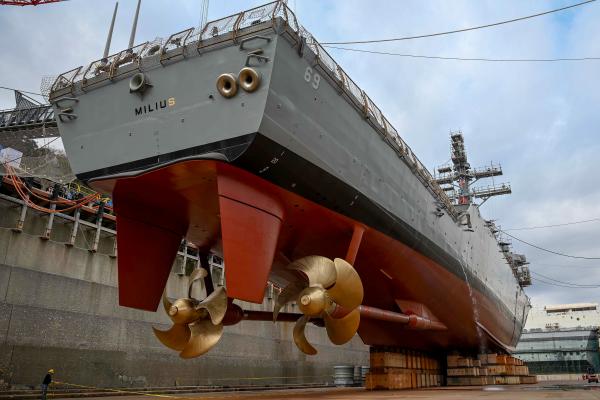
Join Hudson for a discussion highlighting each nation's approach to these common challenges, as well as how US-Japan collaboration should best proceed.

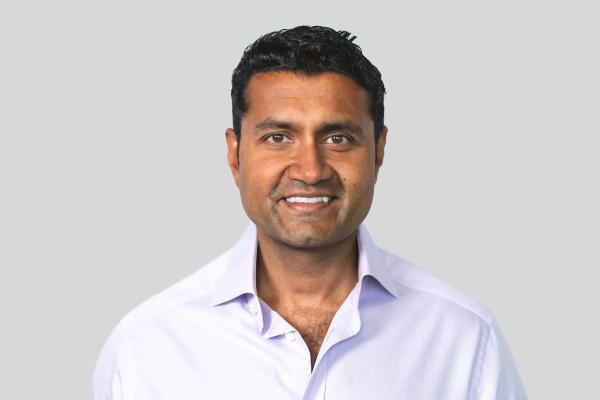
With Walter Russell Mead, Sankar will discuss his strategy to resurrect the American industrial base, win the twenty-first-century defense technology race, and prevent World War III.


Join Distinguished Fellow Mike Gallagher and Congressman Rob Wittman (R-VA) for a discussion on the congressman’s recently introduced Securing Essential and Critical US Resources and Elements (SECURE Minerals) Act and Congress’s role in securing America’s economic security.
